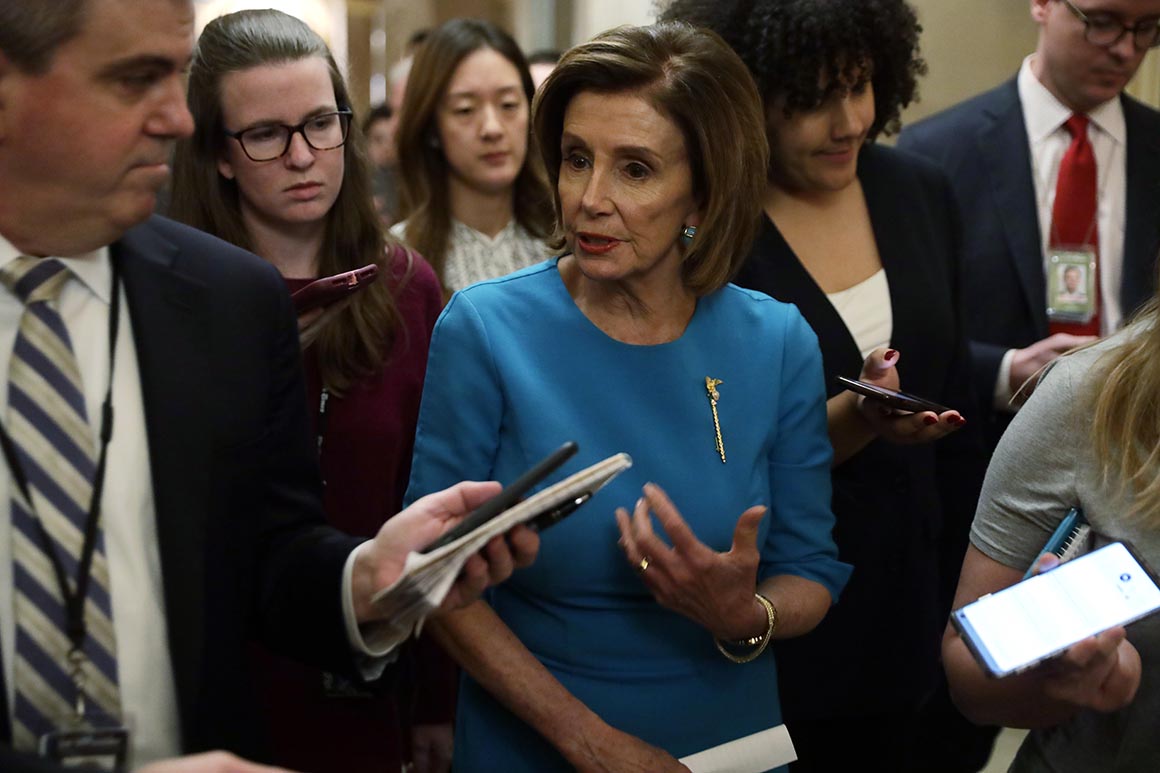
House Democrats’ bill would ban corporations from paying bonuses to their executives or paying any compensation to fired executives until the corporations repay their coronavirus relief loans to the federal government.
The bill would also ban corporations receiving relief loans from buying back their own stock or paying out dividends to shareholders. And it would bar such corporations from lobbying the federal government, in a move sure to arouse anger on K Street among Democratic and Republican lobbyists alike.
McConnell’s bill, in contrast, only prohibits businesses that receive coronavirus relief funds from giving raises for two years to employees who make more than $425,000 a year. It also bans such companies from paying severance packages to employees who make more than $425,000 that are worth more than twice what the employee made last year.
Pelosi’s office didn’t immediately respond to a request for comment.
Neither the bank bailouts of 2008 nor the rescue of General Motors and Chrysler the following year banned the companies receiving aid from retaining Washington lobbyists. General Motors, Chrysler and banks such as JPMorgan Chase and Wells Fargo continued to lobby the federal government after being bailed out, according to disclosure filings.
The lobbying provision in House Democrats’ bill could also face questions about whether it violates corporations’ First Amendment right to petition the government for a redress of grievances.
“Lobbying is, to some extent, considered First Amendment activity, and there are limits on the ability of government to condition the receipt of money on a relinquishment of First Amendment rights,” Rick Pildes, a New York University law professor who specializes in constitutional law, wrote in an email to POLITICO. “Since the businesses are under the gun and might have little choice in reality but to accept the money, the unconstitutional conditions issue would arise in a particularly sharp form.”
Robert Kelner, a Washington lawyer who’s advised clients on lobbying law, said corporations wishing to challenge the provision would have a strong case if it became law.
“I think this would almost certainly be challenged in court, and there’s a very good likelihood the Supreme Court would strike it down,” Kelner said.
Source: politico.com
See more here: news365.stream






